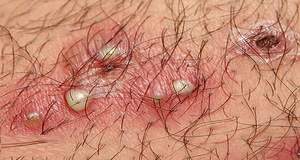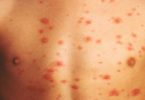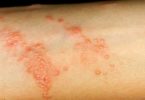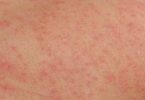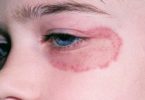What's in this article?
| Medication | Price/Per pill | Site |
| Acyclovir | US 1.26$ | CLICK HERE |
What is genital herpes?
Genital herpes is a sexually transmitted disease (STD) caused by an infection with the herpes simplex virus (HSV). There are two types of HSV. HSV-1 is most commonly associated with blistering lesions around the mouth known as cold sores. HSV-2 is associated with blistering lesions in genital areas that are exposed during sexual contact. However, both types of HSV can infect the mouth or the genital areas. After the initial outbreak of herpes, the virus travels through the nerves and resides in nerve tissue within the body. Reactivations, or repeat occurrences of the blisters, can occur throughout an individual’s lifetime. Up to 50 million people in the U.S. are likely to have a genital herpes infection. Among people aged 14 to 49, an estimated 1 out of every 6 people have the infection.
read more: Herpes simplex virus: Symptoms, Prevention & Treatments
Symptoms of genital herpes
Most people who’ve been infected with HSV don’t know they have the infection because they have no signs or symptoms or because their signs and symptoms are so mild.
When present, the symptoms of genital herpes include:
- Pain or itching that begins within two to 10 days after exposure to an infected sexual partner
- Small red bumps or tiny white blisters, which may appear several days later
- Ulcers that form when the blisters rupture and ooze or bleed
- Scabs that form as the ulcers heal
Ulcers may make it painful to urinate. You also may experience pain and tenderness in your genital area until the infection clears.
During an initial outbreak, you may have flu-like signs and symptoms such as swollen lymph nodes in your groin, headache, muscle aches and fever.
Differences in symptom location
Sores appear where the infection entered your body. You can spread the infection by touching a sore and then rubbing or scratching another area of your body, including your eyes.
Men and women can develop sores on the:
- Buttocks
- Anus
- Mouth
Women can also develop sores in or on the:
- Vaginal area
- External genitals
- Cervix
Men can also develop sores in or on the:
- Penis
- Scrotum
- Thighs
- Urethra, the channel inside the penis leading to the bladder
read more: Most Common Genital Herpes Symptoms in Women
What causes genital herpes?
The herpes viruses enter the skin or mucous membrane through tiny, even microscopic, breaks in the tissue. Because an infected person may transmit the disease even when he or she does not have signs or symptoms of herpes, avoiding sexual contact with someone with active blisters does not guarantee protection against the infection.
Individual outbreaks of herpes vary among affected people in terms of their frequency and severity. Outbreaks can be related to the function of the immune system and are typically worse in cases in which the immune system is suppressed; for example, at times of physical or emotional stress, during illness, or when you are taking certain medications.
read more: Herpes: Causes, Diagnose & Treatments
What is the treatment for genital herpes?
Antiviral medications are available that can help manage the severity and duration of outbreaks, if taken immediately prior to (when there are tingling or unusual skin sensations but no blisters) or within 24 hours of an outbreak. The medications typically used are acyclovir (Zovirax), famciclovir (Famvir), or valacyclovir (Valtrex). These are all typically taken orally. In severe cases of viral infection, antiviral medications may be given intravenously, but this is not typically done for genital herpes. Topical medications that are applied directly to the sores are also available, but these are less effective than oral medications and are not generally used.
All of these medications may also be given as suppressive therapy to decrease the number of outbreaks in people who have frequent outbreaks (more than six outbreaks per year).
read more: Difference Between Herpes And Genital Warts

